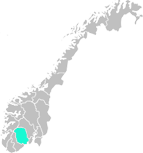



Did you know that some of Munch's most famous works are painted in Kragerø? Take a walk in Munch's footsteps through the streets of Kragerø and visit the places where he found inspiration for his art.
A walking route through his works has been made through informative plates and illustrations.This is a nice activity for the whole family! If the service office in the Town Hall is not closed because of the pandemic, you are welcome to pick up a brochure with map here, so you can walk in Munch's footsteps.
You can also book a guided Munch walk with Katja Cecilie Ræder Aarflot. By interest please contact her via mail: post@kultur-kameratene.no
Group booking;
Minimum 10, maximum 20 participants.
Kr.200,- per person.
Duration: 1 hr 30 mins
Led by one of our experienced Munch guides.
We prefer for one person/company to pre-book for the whole group. Payment in advance.
About Munch in Kragerø
In May 1909 sailed a coastal boat into the Kragerøfjord. On board was the painter Edvard Munch, recently arrived home from an extended stay on a nerve clinic in Copenhagen. Edvard Munch desides to settle down at Skrubben in Kragerø, west of the city, where he rents a bigger house. Years in Kragerø would prove to be some of his most productive, because the environment and "light" had a good impact on his health. In several letters Munch expressed his enthusiasm for Kragerø. Just weeks after his arrival in Kragerø he writes: "I am now working full time, I feel, it now seems as if I am at my artistic peak. Never have my work given me so much joy." In his large studio at Skrubben he worked in the so-called "Kragerø Period" with the two world renowned Aula decorations in University of Oslo. Motifs such as "The Sun", "History" and "Alma Mater" was conceived in Kragerø. In addition he spent time in Kragerø to paint a portion of his best portraits of friends and contacts in the art community. He also painted some pictures of Kragerø urban environment and the surrounding hills which he was particularly fond of.
Munch Statue
In 1998 at a viewpoint on Skrubben, a sculpture were placed in memory of Edvard Munchs Kragerø-period placed into the subject artwork "The Sun". It was precisely here Munch fetched subject to one of his greatest works - "The Sun". The sculpture is made by Kragerø artist Per Elsdorff and are molded by the local A.M. Andersen metal foundry on Øya.
Kragerø is referred to as "The gem among coastal cities" of Edvard Munch, Norway's most…
Gea Norvegica Geo Park is Scandinavia's first UNESCO certified geopark.
The geopark is…
With's boder is the red building located next to Jernbanetorvet. It was built in the…
Gallery Nicolines house is a year-round gallery in Kragerø. The gallery has from the…
Visit Gallery Valen in Kragerø which has a good selection of contemporary art and pop art…
You´ll find the Gallery Thore Sveberg at Andølingen 1b in Kragerø. Want to visit? Call…
The bust of the feminist woman Fernanda Nissen (1862-1920), who was born in Sannidal and…
Kragerø Art Association is located in Kirkegata 5 and belongs to the Artist Quarter which…
You will find Bakkeruds Bunker in the heart of Kragerø town centre, right across fthe…
Minneparken (The Memorial Park) is located right beside Kragerø Church. There you find a…
Kragerø church was consecrated in 1870 and is a Gothic Revival church designed by Georg…
In memory of Anton Martin Schweigaard, a Norwegian jurist and economic reformer who was…
Many important works of art have been created in Kragerø, and Kragerøs significant part…
In Kragerø you will find a number of art galleries. Some of them are open all year round…
Kragerø Town Hall was originally a mansion owned by a ship owner Biørn and his family. It…